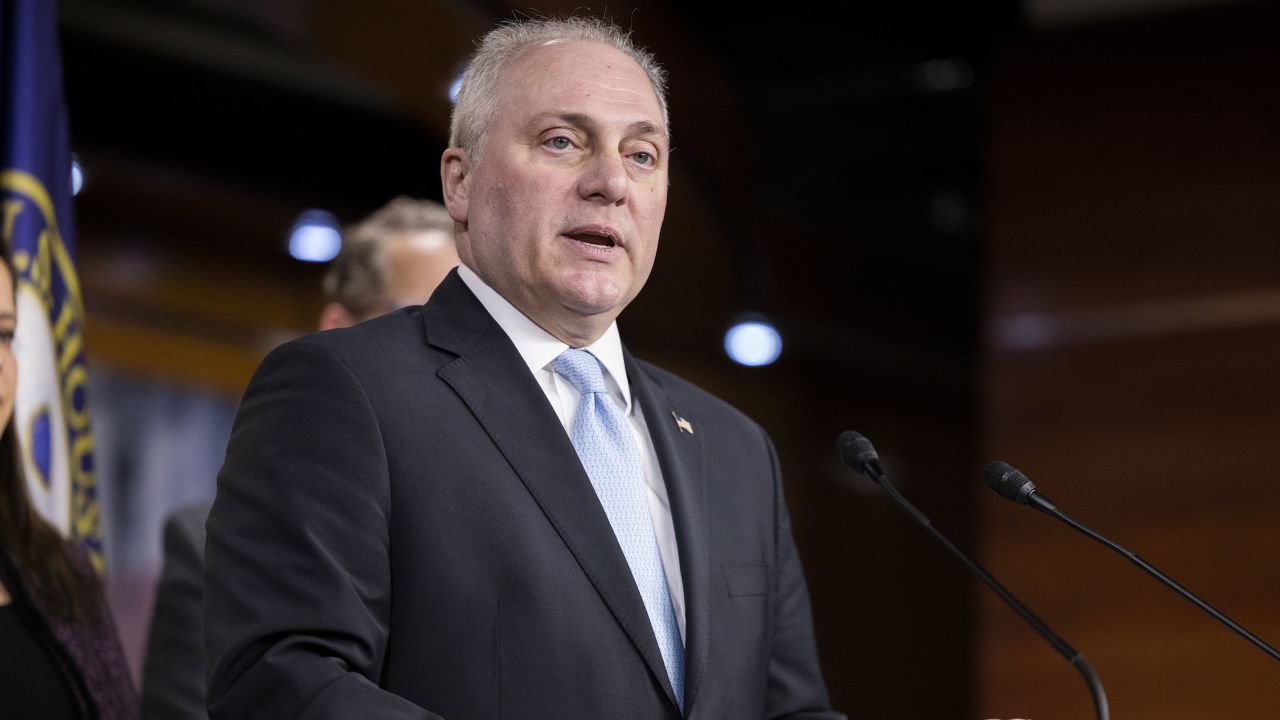In the realm of American politics, the race for House Speaker is often a highly contentious and pivotal moment. Recently, the dynamics surrounding this crucial position have taken center stage, with U.S. Representatives Chip Roy and Michael Cloud, staunch Republicans from Texas, standing firmly against House Majority Leader Steve Scalise, despite his nomination as the next House Speaker for the Republican Party. This article dissects the intricate details of this unfolding saga, highlighting the stakes, key players, and the potential ramifications for the Republican Party as a whole.
Challenging Scalise’s Ascent
The political showdown began shortly after Louisiana Republican Steve Scalise secured the party’s nomination for the coveted position of House Speaker. Both Chip Roy, representing Austin, and Michael Cloud, hailing from Victoria, quickly announced their intentions to vote against Scalise’s candidacy.
These dissenting voices, in combination with other hard-right Republicans who share similar sentiments, could potentially obstruct Scalise’s path to claiming the Speaker’s gavel. The situation bears a striking resemblance to the events of January when Roy, Cloud, and their like-minded colleagues resisted former Speaker Kevin McCarthy’s leadership bid. Their resistance led to a series of 15 votes, a reflection of their quest for greater influence within the Republican Party.
U.S. Representative Keith Self, from McKinney, another Texan who had joined the holdouts during the January votes, declared his opposition to Scalise during a closed-door Republican conference meeting. However, he remained ambiguous about his stance during an eventual floor vote.
A Stalled Vote and Uncertain Outcome
As the political drama unfolded, the House recessed without conducting a vote to elect a new speaker, leaving the Republican Party in limbo. A definitive date for the rescheduled vote remained undisclosed.
Steve Scalise finds himself in direct competition with House Judiciary Chair and co-founder of the Freedom Caucus, Jim Jordan, hailing from Ohio, to replace Kevin McCarthy as the Speaker of the House. McCarthy’s removal from the position resulted from a rebellion by eight far-right members, none of whom were Texans, each nursing various grievances against McCarthy. U.S. Representative Matt Gaetz, a Republican from Florida, spearheaded this push and pledged his support for Scalise.
In a pivotal moment during the House Republican Conference meeting, Scalise secured the party’s nomination for the House-wide speaker election with 113 votes, while Jordan received 99 votes. However, it’s important to note that securing the party’s nomination is just one step in the process. The ultimate goal for any candidate is to garner the support of 217 House members to secure the coveted gavel.
Roy’s Failed Rule Change
Chip Roy brought a noteworthy proposal to the conference meeting. He pushed for a rule that would require a speaker candidate to accumulate at least 217 votes within the Republican conference before scheduling a House-wide vote. This rule aimed to circumvent the public discord that marred the January speaker race, a bitter display of the party’s disarray.
Despite widespread support for Roy’s proposal, the conference voted to table the rule change, a decision that left Roy visibly agitated as he exited the meeting. While Roy refrained from commenting on the election at that moment, he later vented his frustration on social media, denouncing the timing of the vote and pledging to persist in voting against Scalise.
Cloud’s Concerns About Rushed Voting
Michael Cloud echoed Roy’s concerns, expressing reservations about taking the vote to the full House with only partial support for the leading candidate. Cloud emphasized the need for a more comprehensive discussion before proceeding with the nomination.
In his statement on social media, Cloud characterized the rush to the floor vote as a “bad, bad idea” given the lack of consensus within the conference. He made it clear that he would not support the nomination on the floor without further discussions.
The Texas Delegation’s Divide
Leading up to the pivotal meeting, the Texas delegation remained divided in their support for the two leading candidates. The House Freedom Caucus, a bastion of conservatism within the Republican Party, largely rallied behind Jim Jordan, who had also received an endorsement from former President Donald Trump.
In contrast, Steve Scalise enjoyed the support of top McCarthy allies, a testament to his traditional rise within the House Republican Conference. Scalise’s lengthy political resume and formidable fundraising prowess positioned him as the more natural successor.
A Murky Landscape
Amidst the division, several members of the Texas delegation kept their voting preferences secret until the day of the election. Some conveyed a willingness to support either candidate, emphasizing the need for the party to rally behind a singular choice and avoid a protracted and damaging speaker fight.
For U.S. Representative Wesley Hunt, a Republican from Houston, the paramount consideration was the ability of the chosen candidate to secure the necessary votes for the speakership. He refrained from disclosing his vote during the party meeting, underscoring the importance of pragmatism in the selection process.
Nehls’ Support for Jordan and the Quest for Unity
Another Texan, U.S. Representative Troy Nehls from Richmond, expressed his strong support for Jim Jordan. Nehls cited Donald Trump’s endorsement of Jordan as a compelling reason for his backing. Interestingly, Nehls had previously nominated Trump himself to be Speaker, although that effort ultimately fizzled out.
Nehls refrained from specifying his support for the House floor vote, suggesting the possibility of a third candidate, such as Trump or another McCarthy ally, emerging as a unifying force within the party.
A Low Appetite for Prolonged Conflict
While differences within the Texas delegation persisted, the appetite for a protracted speaker fight, akin to the January turmoil, remained low across the party spectrum. Unlike the events of January, when members opposing McCarthy sought specific changes to House rules, many Texas Republicans asserted that there were minimal policy distinctions between the two leading candidates.
U.S. Representative Lance Gooden, representing Terrell, expressed confidence that more members would rally behind Scalise as they recognized his majority support within the Republican ranks. Gooden predicted Scalise’s eventual victory, pointing out that the party appeared to be more unified than during the earlier speaker contest.
Conclusion: The Future of the Speaker Race
The race for House Speaker continues to be a deeply contested and evolving narrative within the Republican Party. The steadfast opposition of Texas Representatives Chip Roy and Michael Cloud, along with other like-minded Republicans, sets the stage for a contentious battle as the party grapples with its choice of leadership. The final outcome remains uncertain, with the need for unity and pragmatism hovering over the proceedings. The ultimate decision, and its implications for the Republican Party, will be closely watched by locals in New York and readers across the United States as the drama unfolds.





